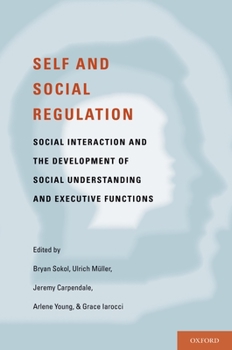Self- And Social-Regulation: The Development of Social Interaction, Social Understanding, and Executive Functions
New research on children's executive functioning and self-regulation has begun to reveal important connections to their developing social understanding (or "theories of mind") and emotional competence. The exact nature of the relations between these aspects of children's social and emotional development is, however, far from being fully understood. Considerable disagreement has emerged, for instance, over the question of whether executive functioning facilitates social-emotional understanding, or vice versa. Recent studies linking the development of children's social understanding with aspects of their interpersonal relationships also raise concerns about the particular role that social interaction plays in the development of executive function. Three key questions currently drive this debate: Does social interaction play a role in the development of executive function or, more generally, self-regulation? If it does play a role, what forms of social interaction facilitate the development of executive function? Do different patterns of interpersonal experience differentially affect the development of self-regulation and social understanding? In this book, the contributors address these questions and explore other emerging theoretical and empirical links between self-regulation, social interaction, and children's psycho-social competence. It will be a valuable resource for student and professional researchers interested in executive function, emotion, and social development.
Format:Hardcover
Language:English
ISBN:0195327691
ISBN13:9780195327694
Release Date:January 2010
Publisher:Oxford University Press, USA
Length:472 Pages
Weight:1.80 lbs.
Dimensions:1.4" x 6.2" x 9.3"
Related Subjects
PsychologyCustomer Reviews
0 rating





